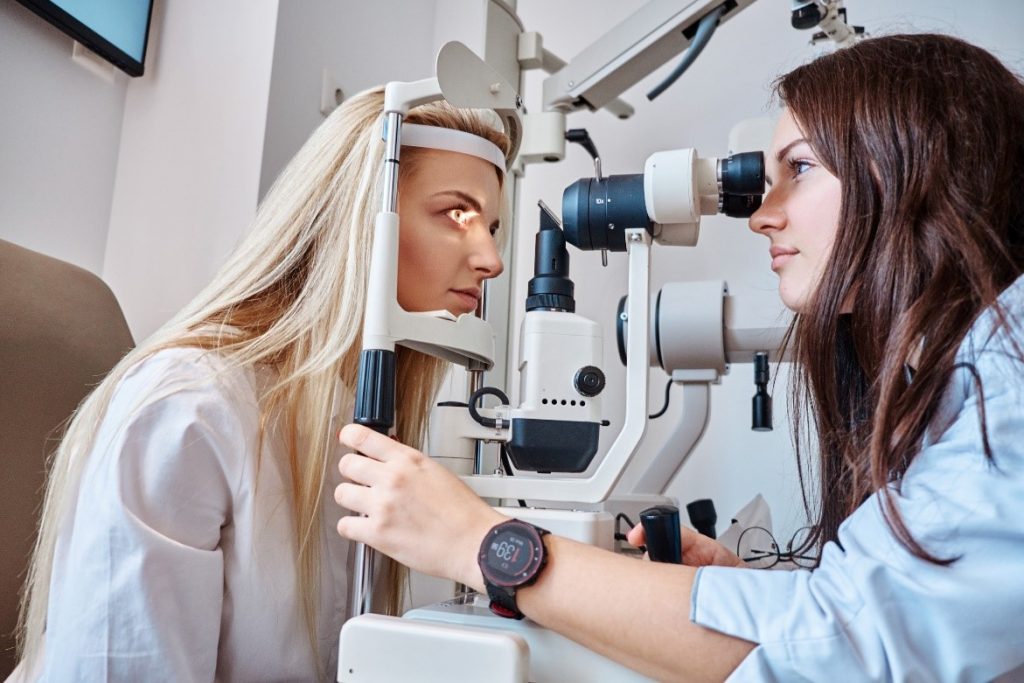Brice Hwang MD is a second generation Korean American and Board-Certified Comprehensive Ophthalmologist. As a specialist in laser assisted cataract surgery, laser glaucoma treatment, diabetic retinopathy and macular degeneration management, Brice Hwang MD discusses the importance of yearly comprehensive eye examinations for early disease detection. Eye tests aren't just about vision. While it clearly plays an important part, industry professionals explain that examinations are integral for the early detection of health conditions — ocular and systemic. The success of many of these procedures also depends on the precision and quality of Ophthalmic surgical instruments, which allow surgeons to perform delicate operations with confidence. Despite their importance, many adults fail to attend (or book) ophthalmology appointments. But this must change. Brice Hwang MD says that humans are looking at screens more than ever. And beyond that, they're failing to see the signs of systemic diseases due to missed comprehensive eye examinations. Professionals hope their consistent cries to keep appointments will soon be heard.
Brice Hwang MD Explains Complete Eye Service
According to the
American Academy of Ophthalmology (AAO), low-risk individuals should have at least one comprehensive eye examination in their 20’s and twice in their 30’s. The AAO recommends that adults get a complete eye examination at age 40 and follow their ophthalmologist’s recommendation for future appointments. At risk individuals should see the ophthalmologist at least annually or as recommended by their practitioner. Brice Hwang MD reports that such eye examinations go beyond standard vision testing, encompassing all the essentials to establish the condition of the eyes and whether any unknown diseases or conditions are present. Professionals say this is what individuals should normally expect from a comprehensive assessment:
- Patient history — The practitioner discusses any current or past eye or vision problems, alongside the patient's overall health. Family history is also assessed to uncover the individual's general risks to certain eye conditions.
- Visual acuity — This measures how clearly each eye sees. Reading charts set at a distance and near are used to take the measurement.
- Preliminary tests — At this stage, the doctor evaluates depth perception, eye muscle movements, peripheral vision, how pupils respond to light, and color vision.
- Keratometry/topography — After that, they'll measure the curvature of the cornea using circles of light to determine the reflection's distance. If the patient requires contact lenses, this is a crucial step.
- Refraction — This determines the lens power required to compensate for refractive errors like farsightedness, nearsightedness, or astigmatism. The practitioner uses a phoropter to place various lenses in front of the eyes, measuring how the lenses focus light. For patients who can't verbally respond or whose focusing power could be hidden, they'll apply drops to temporarily stop the eye from changing focus and perform retinoscopy.
- Eye focusing, teaming, and movement testing — Eyes need to focus, move, and work together to see one clear image. Thus, practitioners assess ocular motility, accommodation, and binocular vision, checking for focusing problems.
- Eye health evaluation — Digital technology, microscopes, and lenses are used to assess the health of the eye's structuring and nearby tissue. Physicians typically apply dilating eye drops to widen the pupil for enhanced viewing of the inside of the eye. It's at this stage that ophthalmologists can detect otherwise unknown eye and systemic diseases.
- Supplemental testing — Depending on the results of the tests, supplement testing may be advised for an in-depth assessment or treatment plan.

 Regular Comprehensive Eye Examinations Prove Essential
Regular Comprehensive Eye Examinations Prove Essential
Brice Hwang MD explains that experts are constantly touting the importance of comprehensive eye examinations, but people often fail to adhere to the guidelines. Perhaps understanding the reasons behind its cruciality can spur adults into action in the hopes of evading age-related eye conditions or leaving long-term conditions without effective treatment.
Improving Eyesight
Brice Hwang MD says that eyes are constantly working. Whether reading, watching TV, driving, taking the kids to school, coloring, working, studying, or anything in between, vision is an important aspect for many people. But it can weaken so gradually that many don't notice it until it's already too late. Comprehensive eye exams, however, pick up on the smaller signs so visual acuity can be corrected as soon as possible.
Promoting Overall Eye Health
Even with good eyesight, comprehensive exams detect underlying problems or eye illnesses that often don't show obvious symptoms at first. Glaucoma and diabetic retinopathy are two of the main ones that don't show symptoms straight off the bat.
Detecting Health Problems Early
Brice Hwang MD says that from blood vessels to tissues to nerves, ophthalmologists see it all in the eyes, determining whether there are existing health problems (e.g., lupus, cancer, high cholesterol, multiple sclerosis, or thyroid disease) early on, allowing patients to have improved outcomes and boosted quality of life.

 Regular Comprehensive Eye Examinations Prove Essential
Regular Comprehensive Eye Examinations Prove Essential